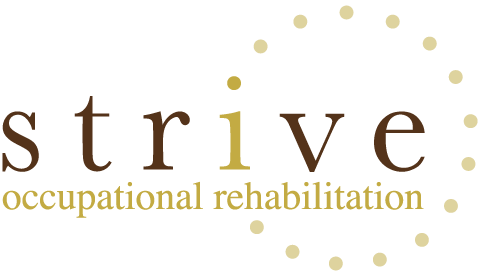What is a Worksite Assessment?
A worksite assessment is a client-centred, detailed evaluation conducted in the workplace to assess an individual worker against the tasks, environment, and demands of a specific job. It aims to understand the individual worker’s health condition/s and current symptoms, their current functional capacity and medical capacity to help the employer to identify risks, provide recommendations for injury management, and support the worker in maintaining them at work or returning to them to work safely.
By analyzing the interaction between the worker, their job tasks, and the work environment, a worksite assessment ensures that modifications or interventions are tailored to the individual’s needs while also considering workplace requirements. This process is a collaborative approach involving the employee, employer, and one of our specialist Consultant’s to promote workplace safety and optimize productivity.
At Strive our approach will involve a one-to-one interview with the worker first, to obtain the relevant health, medical and background information. From there we can complete any relevant functional testing required to help understand the person’s current functional tolerances. After this is completed, with the assistance of the employer, we will review the various tasks and duties that the worker is required to complete for their role and can provide to the employer recommendations for adjustments, modifications, equipment or suggested upgrades based on our findings.
When Should I Refer for a Worksite Assessment?
Referrals for a worksite assessment should be considered in various scenarios, including:
- Injury or illness recovery: When a worker is recovering from an injury or illness and requires support to return to work or to remain at work safely.
- Workplace Accommodations or reasonable adjustments: If modifications to tasks, equipment, or processes are needed to enable a worker to perform their job safely and effectively.
- Ergonomic concerns: When there are concerns about ergonomic risks, such as repetitive strain or improper workstation setup.
- Proactive risk management: To prevent injuries by identifying hazards and risks, and implementing preventative measures or adjustments.
- Performance concerns: If an employee’s physical or cognitive capacity changes, impacting their ability to perform their role.
What are the benefits of doing a Worksite Assessment?
A worksite assessment offers numerous benefits for both employees and employers, including:
- Facilitating safe return to work: Tailored recommendations to ensure a smooth transition back to work after an injury or illness.
- Reducing Risk of Re-Injury: Identifying and mitigating workplace risks to prevent further injuries.
- Improved understanding between worker and manager: By involving the line manager in the process, a Consultant can help to educate the manager to better understand the workers’ needs, their symptoms, trajectory for recovery and improve two-way communication between worker and manager.
- Enhancing productivity: Supporting workers to perform their roles effectively through task or equipment modifications.
- Improving employee well-being: Demonstrating care for employees’ health, fostering a supportive work environment and culture.
- Cost savings: Reducing workers’ compensation claims and minimising lost time due to injuries and associated costs to backfill and train others.
- Compliance: Ensuring workplace practices align with occupational health and safety regulations.
Who Can Complete a Worksite Assessment?
Worksite assessments are typically completed by qualified professionals with expertise in occupational health and injury management. This may include:
- Occupational Therapists (for physical, psychological, neurological and cognitive health conditions)
- Physiotherapists (primarily for physical health conditions, pain-related conditions and neurological health conditions)
- Exercise Physiologists (primarily for physical health conditions, pain-related conditions and neurological health conditions)
- Psychologists (primarily for psychological and cognitive health conditions)
- Rehabilitation Counsellors (primarily for psychological and cognitive health conditions)
These professionals work collaboratively with employers, employees, treating practitioner’s and other stakeholders to create a safe and sustainable work environment tailored to individual and organisational needs.
By incorporating worksite assessments into your injury management strategy, you can support your workforce while maintaining a productive and compliant workplace.
Get in touch today
We are proud to be Queensland owned and operated. We operate across five geographical locations – Brisbane, Gold Coast, Toowoomba, Townsville and Cairns.
We are ideally positioned to help you meet your return to work and occupational rehabilitation needs.
